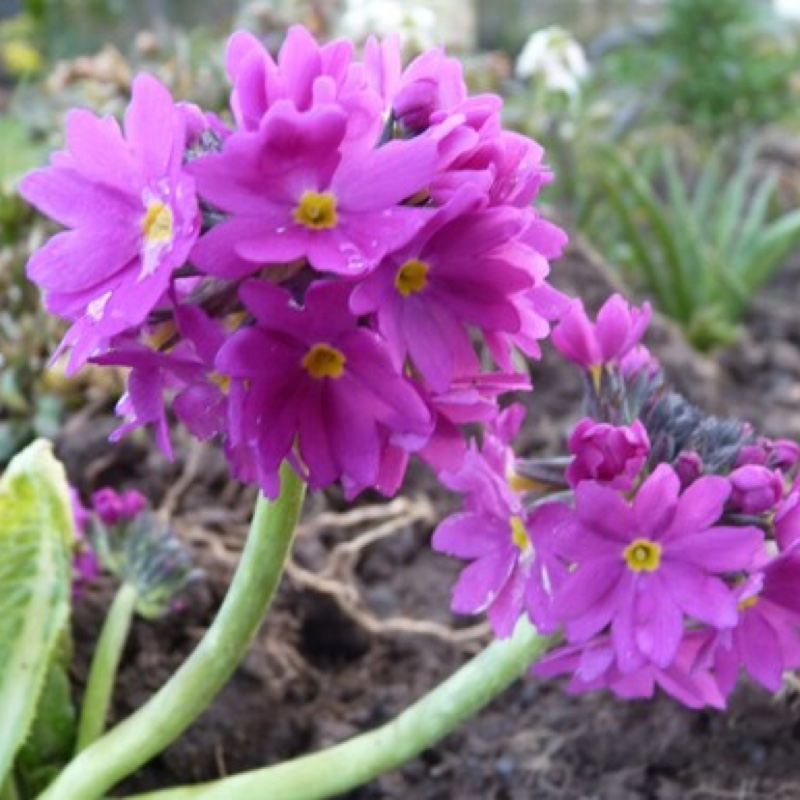
Primula Denticulata 'Rubin'
Drumstick Primrose 'Rubin'
Primula Denticulata is a primula with spoon-shaped leaves, and a pompom of flowers on a sturdy stem in Spring. 'Rubin' has deep pink flowers.
Contributed by @Patiorose
-
Full sun to partial shade
-
Occasional watering
-
Full Frost Hardy: 5F (-15°C)
-
Moist and free draining
Common name
Drumstick Primrose 'Rubin'
Latin name
Primula Denticulata 'Rubin'
type
Herbaceous Perennials
family
Primulaceae
ph
5.0 - 7.0 Acid - Neutral
Plant & bloom calendar
-
Best time to plant
-
When the plant will bloom
full grown dimensions
 0.50 M
0.45 M
0.50 M
0.45 M
Primula Denticulata 'Rubin'
Primula Denticulata is a primula with spoon-shaped leaves, and a pompom of flowers on a sturdy stem in Spring. 'Rubin' has deep pink flowers.
Planting young plants
From Early Autumn TO Mid Spring
Alpine varieties require a humus rich, well drained soil and are suitable for rock gardens or alpine houses. Border primulas require more moisture and should be grown where the soil does not dry out or where they can be watered when necessary. They are ideal for bog gardens and waterside planting. Plant border primulas between mid Autumn and mid Spring in full sun or partial shade, incorporating peat or well decayed manure. Plant alpine varieties between early Autumn and mid Spring in sun or partial shade, adding leaf mould or extra gritty sand where necessary.
Propagating by seed
From Mid Spring TO Mid Spring
Fill a seed tray with seed compost, water, and allow to drain.Sprinkle seeds over the surface allowing roughly 25mm space between seeds and cover with a thin layer of compost. Put tray in a clear polythene bag and place on a windowsill. When seedlings show remove plastic bag. When the second pair of leaves appear on the seedlings thin out to 50mm spacing by removing the weakest looking plants. After 2 or 3 weeks and when danger of frost has passed plants can then be planted outside into required position.
Flowering
From Late Winter TO Early Spring
Flowers are borne at the end of stout stems well above the leaves in Spring
Propagation by division.
From Mid Spring TO Early Summer
Most primulas can be divided after flowering and planted directly into their flowering position.



























